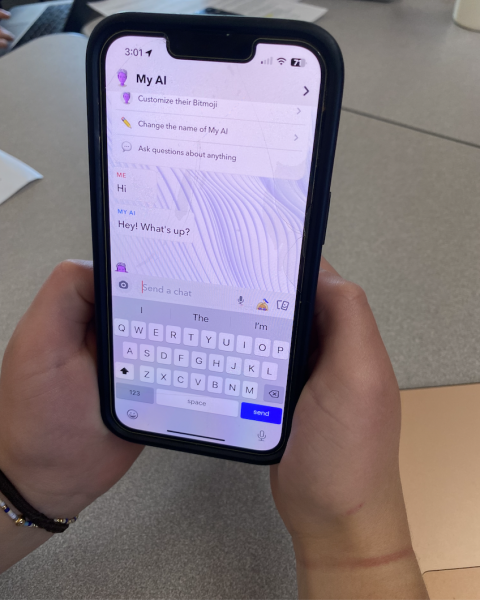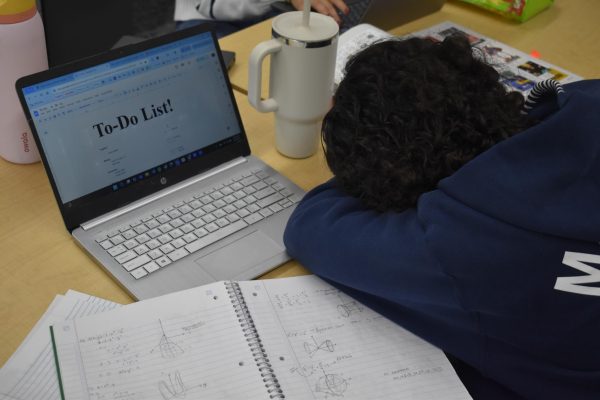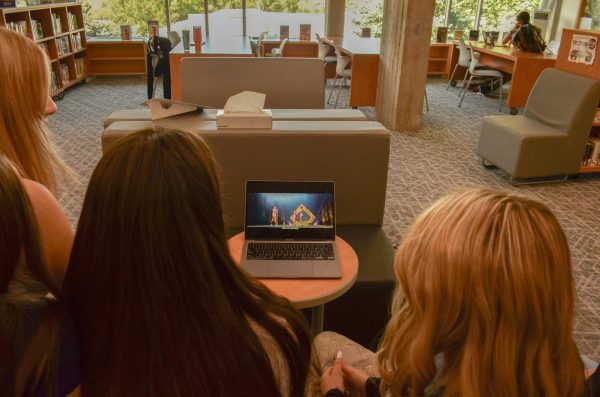Playing the Lottery: Ex Ed Creates Controversy
Students on Forging the Finger Lakes Ex Ed in 2014 climb a waterfall in Watkin’s Glenn, New York.
On Thursday, August 27th, kids anxiously awaited the news of their Ex Ed courses. Some were thrilled to have gotten one of their first choices while others were very disappointed to see they were placed in second-lottery again. Many students are upset by perceived unfairness in the lottery system, especially because few people understand how the lottery actually works.
Ex Ed committee member Amanda Martin ran this year’s lottery, which is still based on points and lottery numbers, even though these are no longer shared with students. There are also other nuances that affect which course students receive.
“This year we were very considerate about the gender on courses and the grade level diversity on courses,” Martin said. “[The course leaders] could actually specify the gender ratios that they needed, and then they were able to specify whether they wanted roughly equivalent in grade level or they didn’t care in grade level.”
This way the Ex Ed committee is able to fill all the needs and preferences of the teachers and the courses. For example, the courses that stay at hostels can only have a certain number of people per room and they all have to be the same gender so that affects the numbers of students that end up on that course.
“It’s even worse because if you are a girl and all the girls above you choose the same exact courses then all of your possibilities are full,” Martin said.
According to Martin, the only downfall with the Ex-Ed system lies in the numbers.
“Well the problem is we have only so many trips and so many systems,” Martin said. “If you think about it the top trips like San Juan, Santa Barbara, and the Bay Area courses, a lot of those are only ten to twenty students.”
Even if you have a lot of points or a good lottery number, there may still be people with more points, and a better lottery number. Beyond that, if you don’t fit the criteria of grade and gender needs for a course you most likely won’t end up on it. It gets even more complicated when you are dealing with groups of people with the same preferences.
An additional obstacle this year occurred because the lottery last year was done by hand, and everyone’s previous point values were not tracked. Through an effort from a group of staff members who still had their forms detailing the information from the kids, the Ex Ed committee was able to backup the data, and recreate the students point values. According to Martin no data or point values of any kids were lost.
Still, students like senior Erik Gagen feel that the lottery system is unjust.
“I feel that the lottery is skewed and that teachers hand select students, and that there is no consistency throughout the system,” Gagen said.
Although there has been no proof of this, some students feel that the reason they have not gotten one of their first choices is due to a biased lottery system. Gagen said that his junior year at AHS, he had eleven points, lottery number 86, and still received his last choice course of Cataract Canyon. This year with 21 points, he was sure he was finally going to get his first choice. Instead he got his fourth choice, Bay Area Bike Tour.
“I felt disappointed and frustrated and that I had been taken advantage of by the [lottery] system,” Gagen said.
AHS sophomore Kim Nunes has also had issues with the lottery system this year. After being put on a second-lottery course last year, she had 10 points, and was looking forward to a better course. This year she was put in second-lottery again and received 3D printing.
“I was upset when I got my trip because I figured with my 10 points, I would have gotten at least one of my top three choices,” Nunes said.
After learning she had gotten a second lottery course for the second year in a row, she decided to opt out of going on Ex Ed this year and is instead going to a wedding.

Jordan is a senior at AHS, and the Editor-In-Chief for the Skier Scribbler. This is her third year as a part of the paper and she plans on writing in college....

































